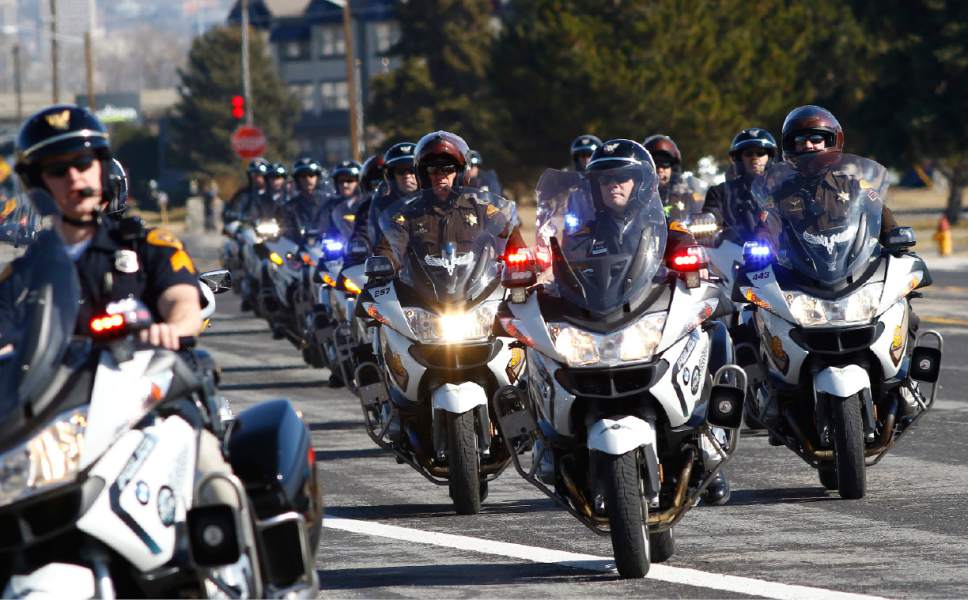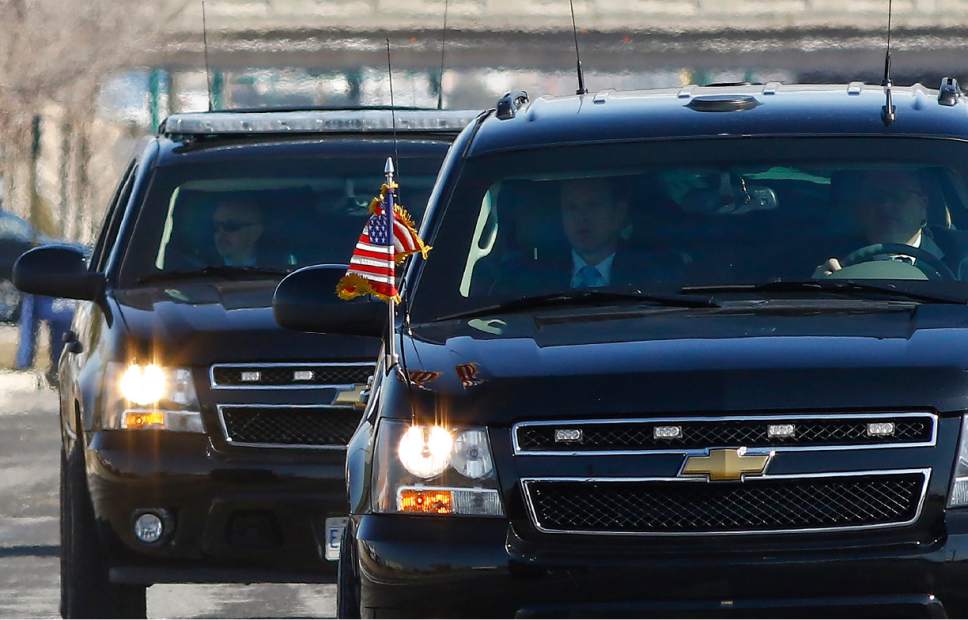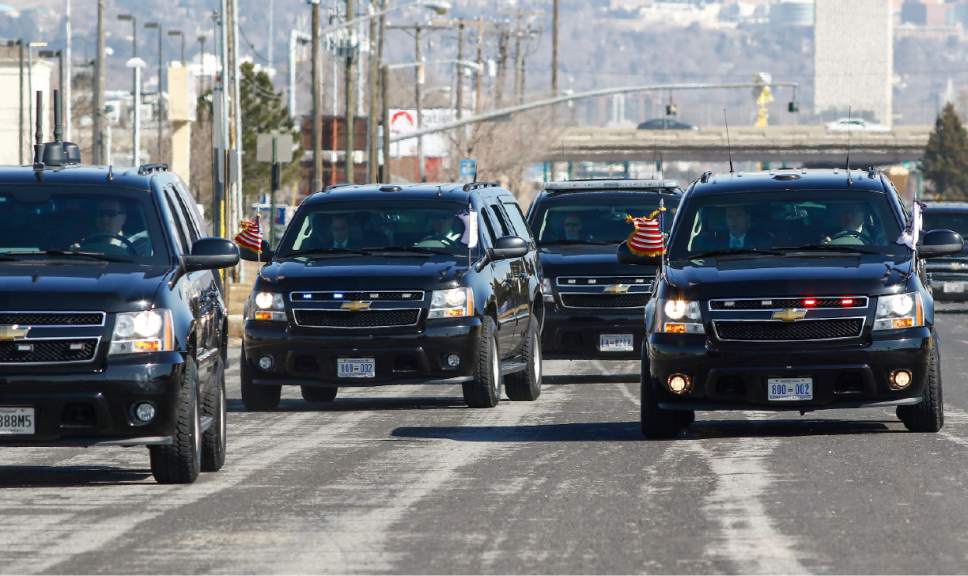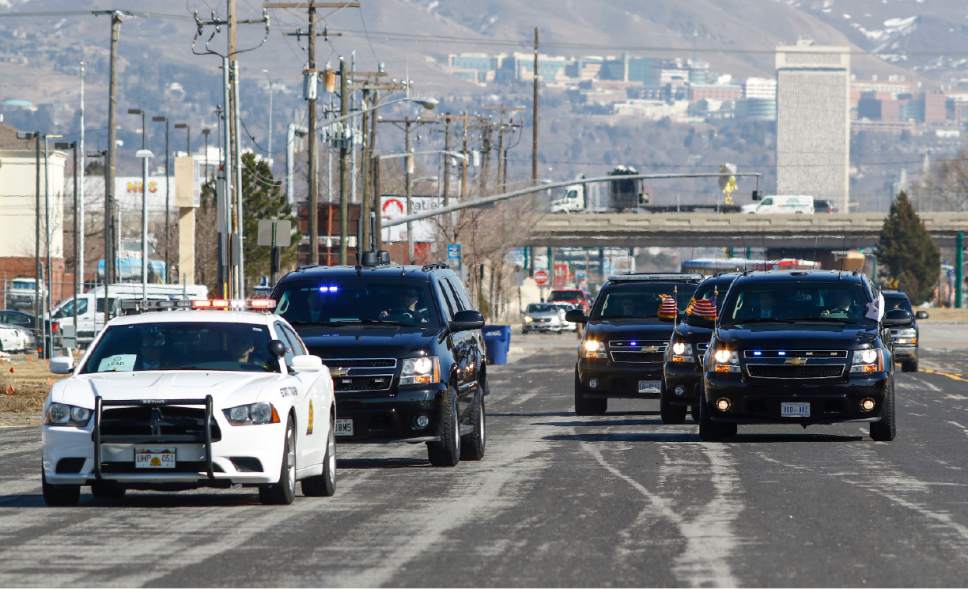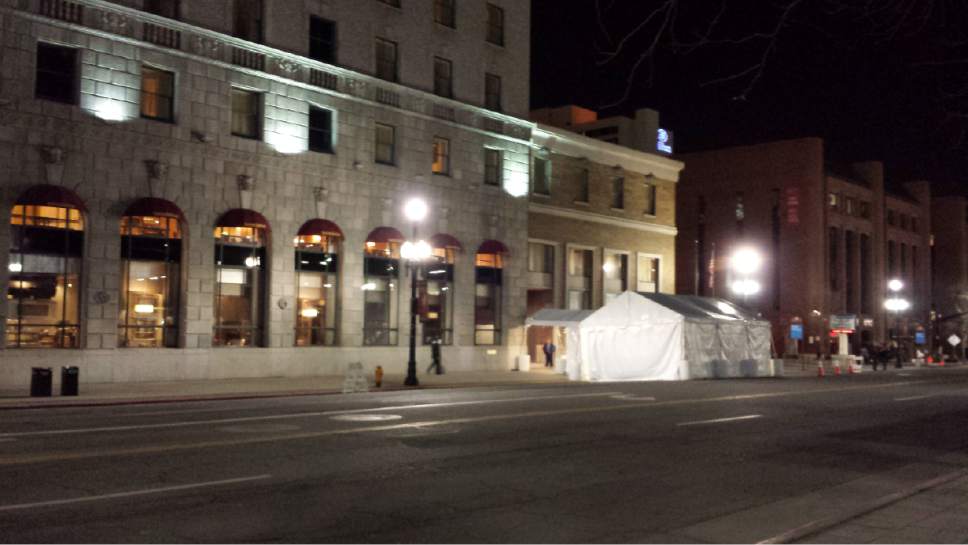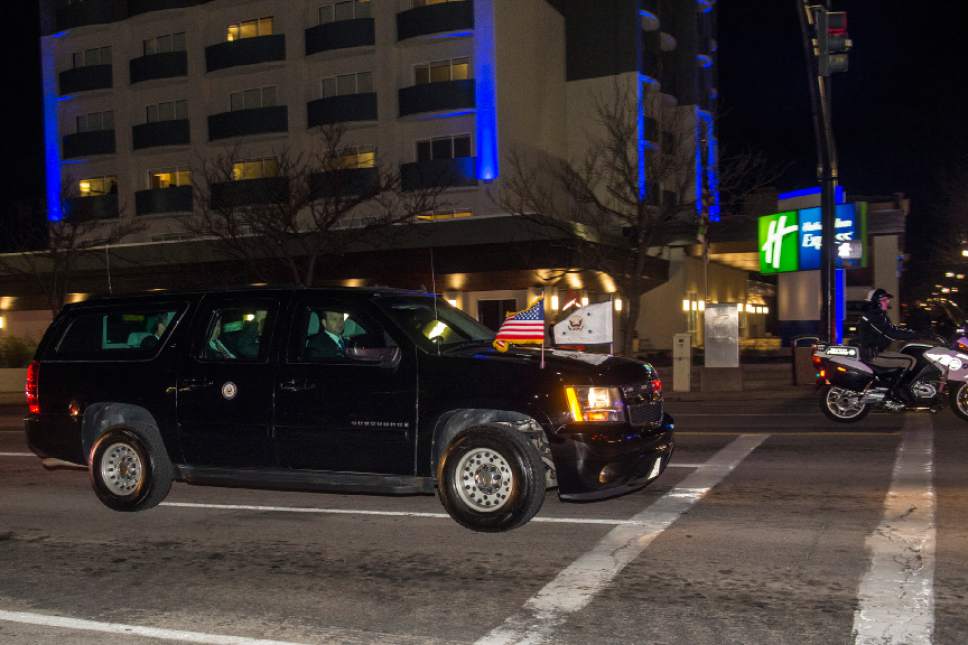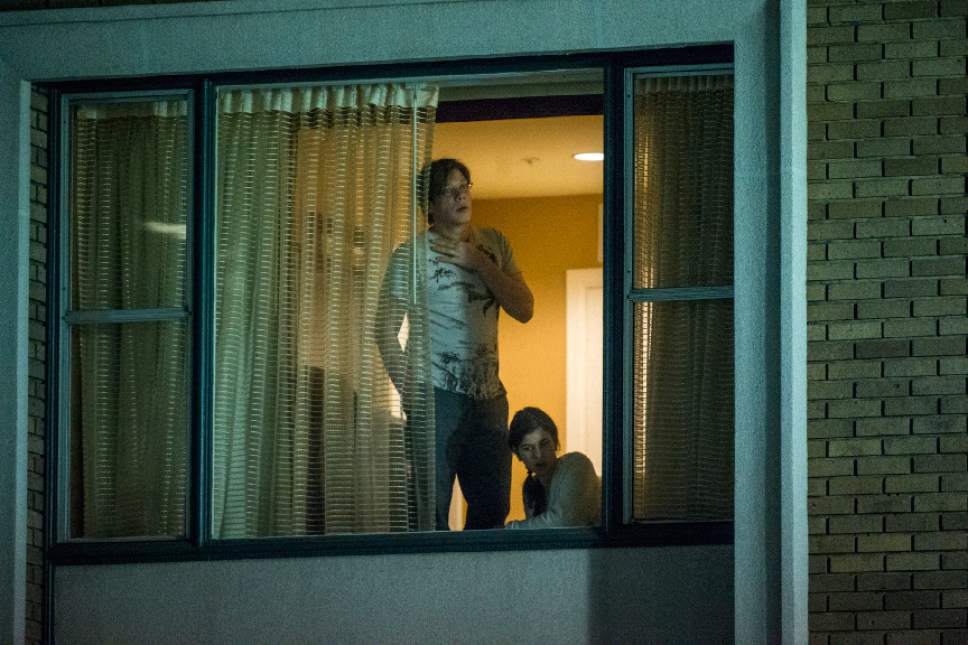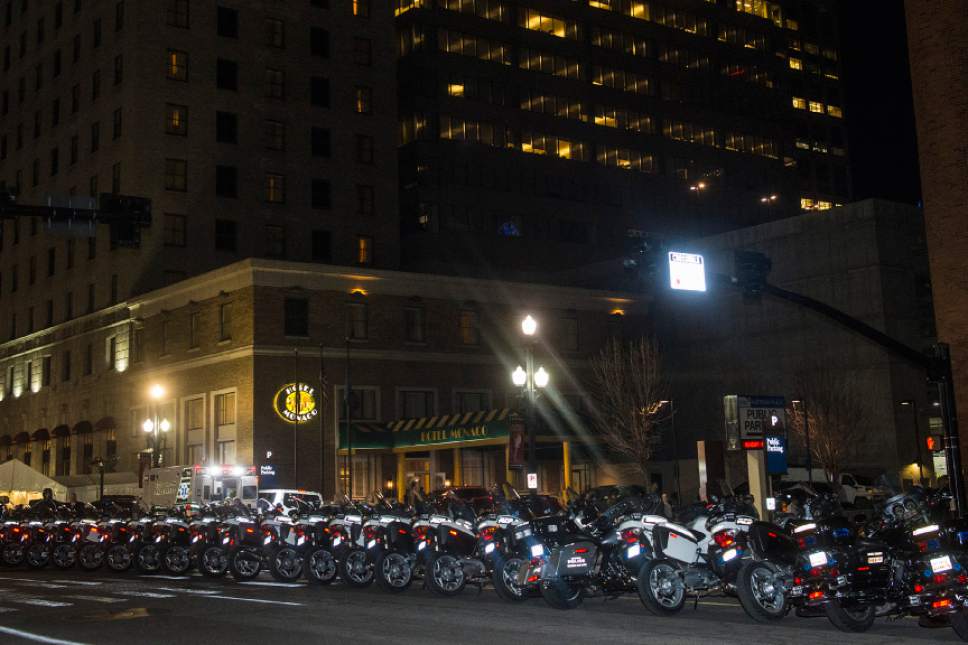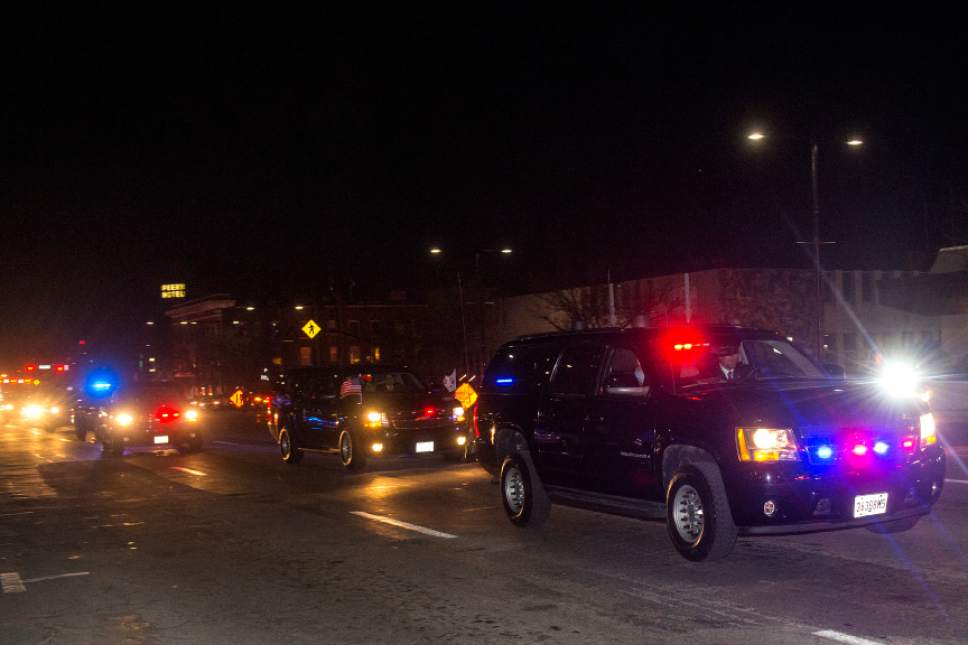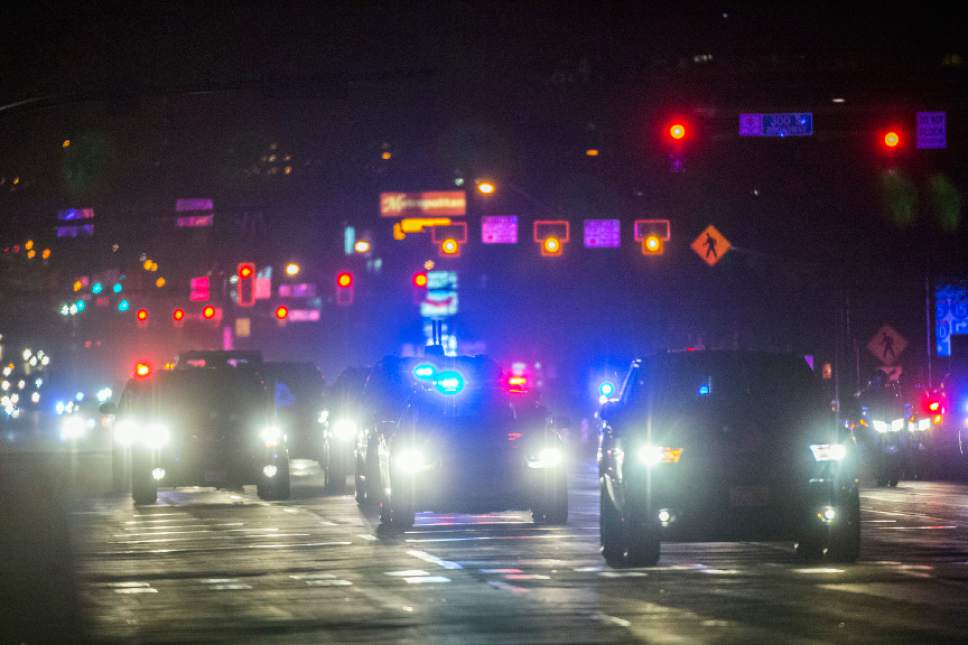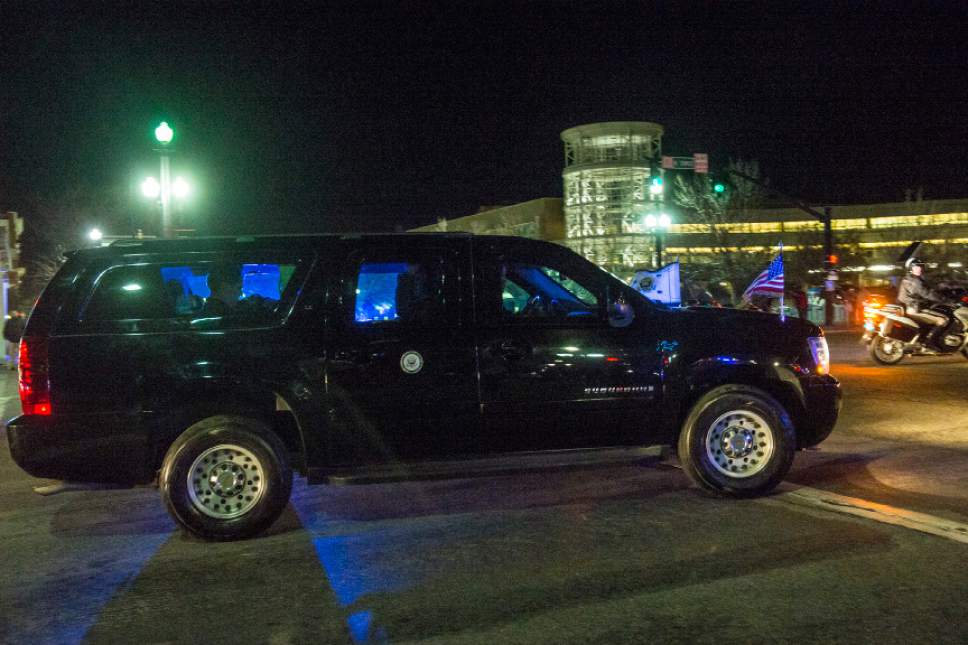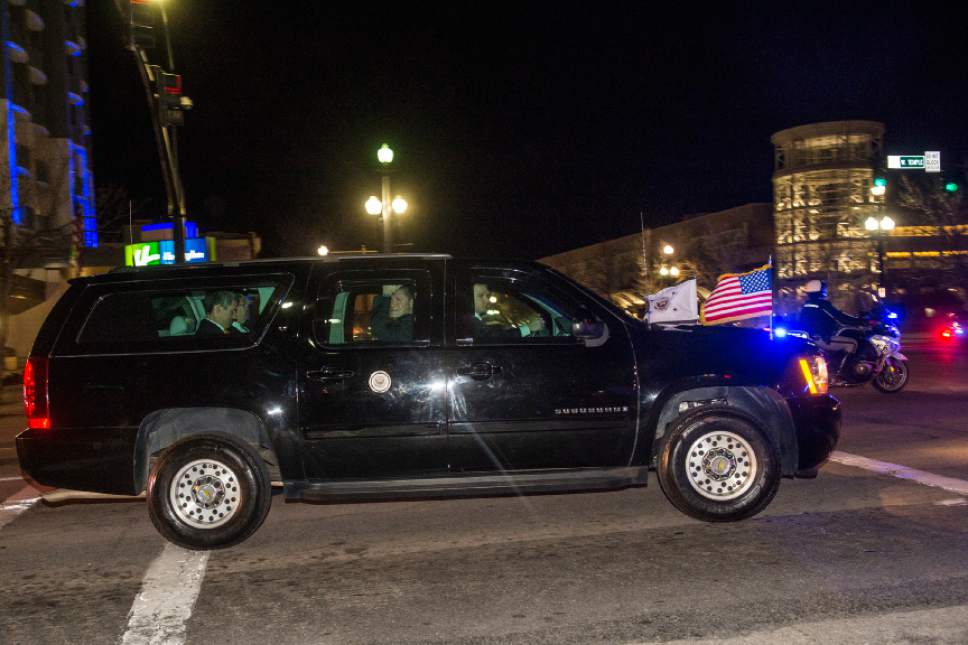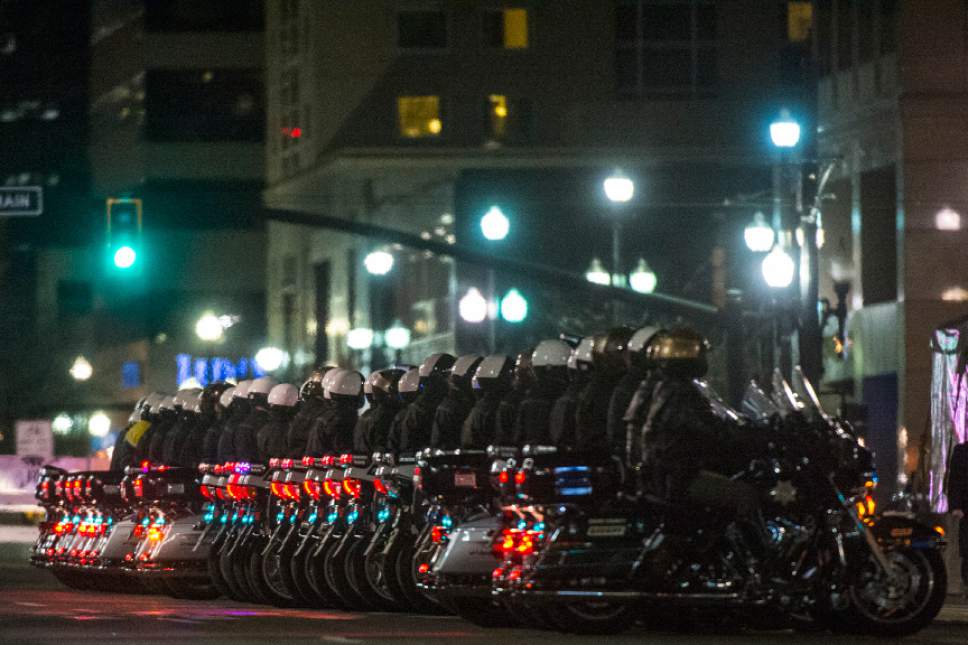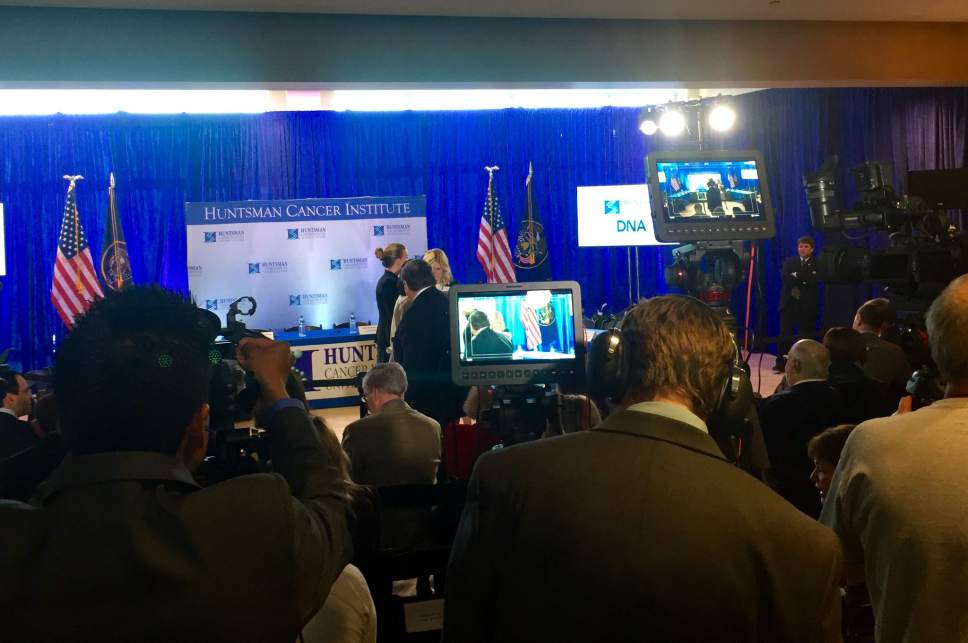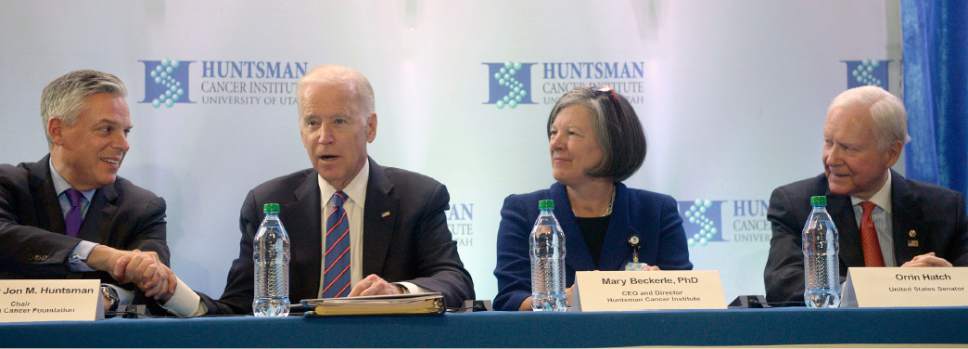This is an archived article that was published on sltrib.com in 2016, and information in the article may be outdated. It is provided only for personal research purposes and may not be reprinted.
Vice President Joe Biden said during a visit to the University of Utah's Huntsman Cancer Institute on Friday morning that greater collaboration between medical centers is essential to finding a cure for the disease.
There is the potential for a "mind-blowing" future, he said, in which big data unlocks answers to how individual patients can be treated for cancers.
But those prospects are limited, Biden said, because the nation's health records are locked away in individual institutions. "Tapping this treasure trove of information seems to be vital," Biden said.
Biden participated in a roundtable discussion with administrators from Huntsman Cancer Institute (HCI) and the University of Utah after a tour of the cancer center.
Joining Biden on that tour were former Utah Gov. and current Huntsman Cancer Foundation Chairman Jon Huntsman Jr., Utah Sen. Orrin Hatch, HCI Director and CEO Mary Beckerle, Utah Population Database Director Ken Smith, family gastroenterologist Jewel Samadder and Salt Lake City resident and HCI patient Gregg Johnson.
Elder M. Russell Ballard, a member of the Quorum of the Twelve Apostles of The Church of Jesus Christ of Latter-day Saints, was in the audience. Biden met earlier in the day with LDS Church leaders at the Family History Library, where they presented him with five volumes of his genealogy.
The church's genealogy records aided researchers in forming the Utah Population Database at the center of HCI's precision-medicine research.
Biden praised the database, which links family histories to more than 8 million medical records, and asked what could be done to develop and combine similar databases nationwide.
He repeatedly asked members of the panel whether data such as the Utah Population Database can be better shared. Institutions are "all creating their own. ... Does that make sense?"
Panelist Emma E. Houston, a cancer survivor, wondered whether her 37-year-old daughter's breast cancer might have been discovered much earlier with better cooperation between institutions. "Can we take the ego out of it?" she asked.
Biden also spoke about his son Beau, who died from brain cancer last year at age 46.
The vice president recalled praying each night, "Just let him live long enough for the science to catch up. Because I know it will catch up."
Biden's visit to Salt Lake City was part of an initiative to promote a "moonshot" cure for cancer, a nod to the United States' 1960s effort and success in placing a man on the moon.
The vice president was tapped for the effort by President Barack Obama, who in January also announced a goal of a $215 million "precision medicine initiative," which would match cancer treatment with the DNA profile of individual patients.
Biden said he almost wishes the administration hadn't used the phrase "moonshot." Rather than shooting for the moon, he said, the initiative is about combining the nation's intellectual, moral, emotional and scientific capital to do in five years what would otherwise take 10 or 15 years.
"Everyone seems to be starting to sing from the same hymnal here," he said. "Everyone is sort of getting on the same page."
Biden joked that his decision not to run in 2016 "brought a sigh of relief to a lot of Democrats. But all kidding aside ... I did say it was my plan not to run, but not to disengage." One regret he has, he said, is that "I would have loved to have been the president to [oversee] ... a fundamental shift in our war on cancer."
Huntsman told Biden after the roundtable that "politics had been put aside" in support of the campaign.
"Every American is behind you in your quest to lead out in finding a cure for cancer and making lives better," he said.
As Biden wrapped up the roundtable, a man in the audience who identified himself as Lacee Harris of the Northern Ute Tribe spoke up and said that he was pleased that Biden had mentioned native health, and "I just want to encourage you strongly not to leave us out."
Biden responded that when Huntsman approached him about including HCI in the "moonshot" campaign, "the first thing he talked to me about" was underserved populations, specifically mentioning the tribes that call Utah home. Biden said rural communities like American Indian reservations and nations face challenges when it comes to accessing health care. "I can appreciate your frustration," he said.
Salt Lake City was Biden's third stop on the moonshot campaign, following similar visits to the University of Pennsylvania and Duke University.
Biden had not announced that he would stay overnight in Utah before his Friday morning events, but after dozens of motorcycle officers, several vans and an ambulance arrived at the Monaco on Thursday evening, hotel staff confirmed that the vice president was residing there.
An alleyway behind the hotel, between Main Street and West Temple, was also closed to traffic, and those who had parked their cars on Main Street or 200 South returned to find empty parking spaces and notices that cars had been towed blocks away for security reasons.
Following his remarks in Salt Lake City, Biden was scheduled to travel to the University of California at San Francisco.
Tribune reporter Matthew Piper contributed to this story.
Twitter: @bjaminwood


